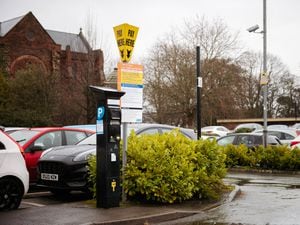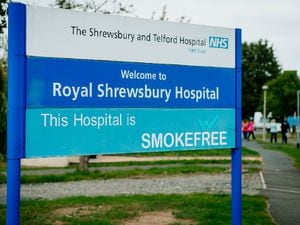Frustrated Shropshire student in Italy move after unable to land university to study medicine
An aspiring doctor from Shropshire has had to relocate to Italy in order to train after being unable to get a place at any British university.

Harry Phillips, from Oswestry, gained three As in A-level Biology, Chemistry, and History last year but couldn't find a place to study medicine.
After spending a gap year gaining work experience at a local minor injuries unit, he applied to study medicine for the second time – but the second year running was rejected without being interviewed once.
Today the 19-year-old spoke of his frustration at the lack of opportunities available despite a need for fresh skills within the NHS.
He said: "This is the harsh reality faced by many young and academically capable students, as the number of placements at UK universities continues its failure to meet demand, and provide the adequate number of doctors which the NHS and our GP services desperately need. The shortfall is made up by foreign recruitment.
"In September I travelled to London, where I took the IMAT, an aptitude test for a medicine and surgery course, taught in English, offered by several universities in Italy. It was a drastic option, yet one I felt forced to take.
"I received the results mid-October, and I came around 110th out of 3,500 candidates. I secured a place at the University of Pavia, a little south of Milan. A week later, the course had started, and I could finally call myself a medical student." Mr Phillips will graduate with a masters degree in medicine and surgery after completing the six-year course, which is a year longer than the UK standard.
He said: "The course seems to be structured more traditionally, with academic teaching making up the first few years of the degree and clinical training coming later. This is beneficial to me, as it gives me time to learn basic Italian before I have to engage with patients.
"On completing my medical training, as long as I am fully registered and qualified to work within Italy which is a member of the EEA, then registering with the General Medical Council in the UK should be a simple matter, allowing me to return home to the UK and work.
"A language test is usually required for European applicants but this is not a concern for myself, seeing as English is shamefully the only language I know – something which I am currently attempting to change.
"In terms of job opportunities, a degree in medicine from a respectable Italian university will open up many doors for me, though there will always be competition for the most sought-after professions. In this respect, my prospects will be much the same as those in the UK."
Despite now being on the path towards being a doctor, Mr Phillips said his situation highlights the problems faced by hundreds of aspiring medics in the UK.
"My efforts of letter writing to my MP were met by a response from the Health Secretary, who advised me to contact NHS England, the body responsible for determining the number of placements for medicine at UK universities. They in turn advised my to wait for the arrival of more private medical schools – an impractical option few could ever enjoy, with the level of tuition fees charged being far beyond the capabilities of many, myself included," he said.
"For me studying in Italy, the cost is manageable, with living costs being comparable to the UK, and the maximum tuition fee being around 3,500 euros per year, easily reduced to half that amount with the correct documentation.
"It's a squeeze on my family, but nothing like the tens of thousands of dollars they would charge in the USA, and I will graduate without the life-sized debt many in the UK will have from the Student Loans Company.
"Happy as I am to be back on my career path these circumstances are far from ideal, as I would give anything to be a student in the country I was born in, raised in and love."





